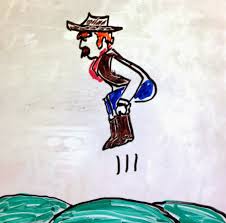Daniel King refuses to follow the evidence regarding the implications of biological semiotics, so Upright Biped asks him:
Are you suggesting we dig up Alan Turing and test the need for a symbol system expressive enough to describe an interpreter for itself? Are you wanting to test von Neumann’s mathematical structure of self-replication, or the validity of Crick’s adapter hypothesis? Are you uncertain whether or not the anticodon-to-amino acid association is isolated from the codon-to-anticodon association? Are you wanting to test Pattee’s epistemic cut between rate-independent control and rate-based dynamics? Are you wondering if amino acids can be derived from the spatial orientation of nucleobases? Are you wanting to know if Nirenberg had to demonstrate the code in order to discover it? Shall I go on, or have you got the point yet? There is no observation that I am making that is even controversial; the observations that are important to my argument are generally considered settled science.
The outstanding question is if genetic language and natural language require the same physical conditions in order to function. Not only is a test for that question provided on my website, but the answer to the question is already part of the scientific record – put there (repeatedly) by eminently well-trained researchers working within their specialties.
Matspirit jumps in and responds:
“Representation” and “translation” are not required for life and current OOL theory doesn’t suppose they existed in the First Living Thing. Representation and translation are much faster and more flexible than direct copying and once direct copy organisms began to evolve it they dominated and replaced the old system. But representation and translation systems weren’t possible until direct copying life evolved them.
None of this should be a surprise to anybody, it’s not exactly a secret. But the “no life without representation and translation” theory does have one big thing going for it from an ID/creationist viewpoint: it makes OOL look impossibly difficult.
This is just astonishing. The degree of materialist fideism entailed in this passage boggles the mind. Representation and translation are absolutely essential to materialist evolutionary theory, except when they were not at a time when they could not, in principle, exist. Then they were entirely dispensable.
Here is a pictorial representation of Matspirit’s argument:
And here is how you have to hold your teeth while maintaining Matspirit’s narrative:
To his credit, Matspirit does recognize the implications of accepting the evidence on its face. He writes: “the ‘no life without representation and translation’ theory . . .makes OOL look impossibly difficult.” If by “OOL” one means “materialist OOL,” that is exactly right Matspirit. And if one is committed to the materialist narrative even at the expense of logic and evidence, this is a huge problem. Because, as demonstrated above, it makes you say (and tell yourself that you believe) aggressively stupid things.

